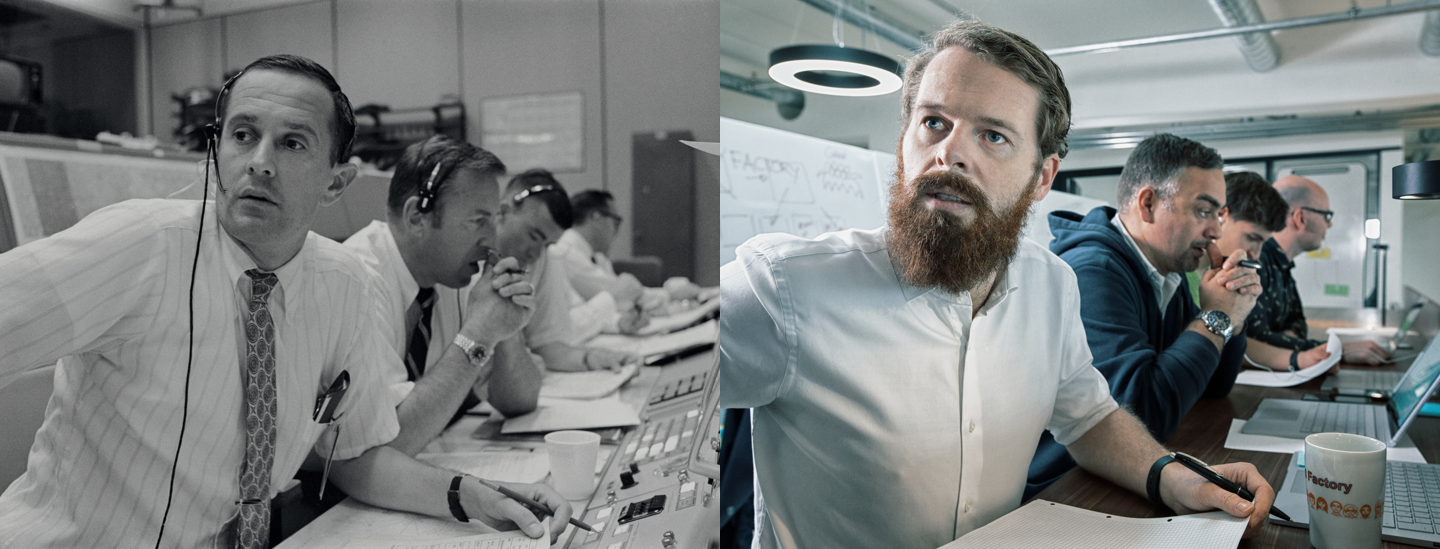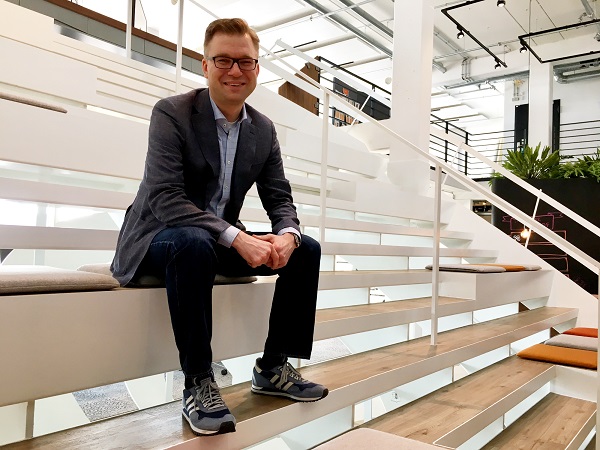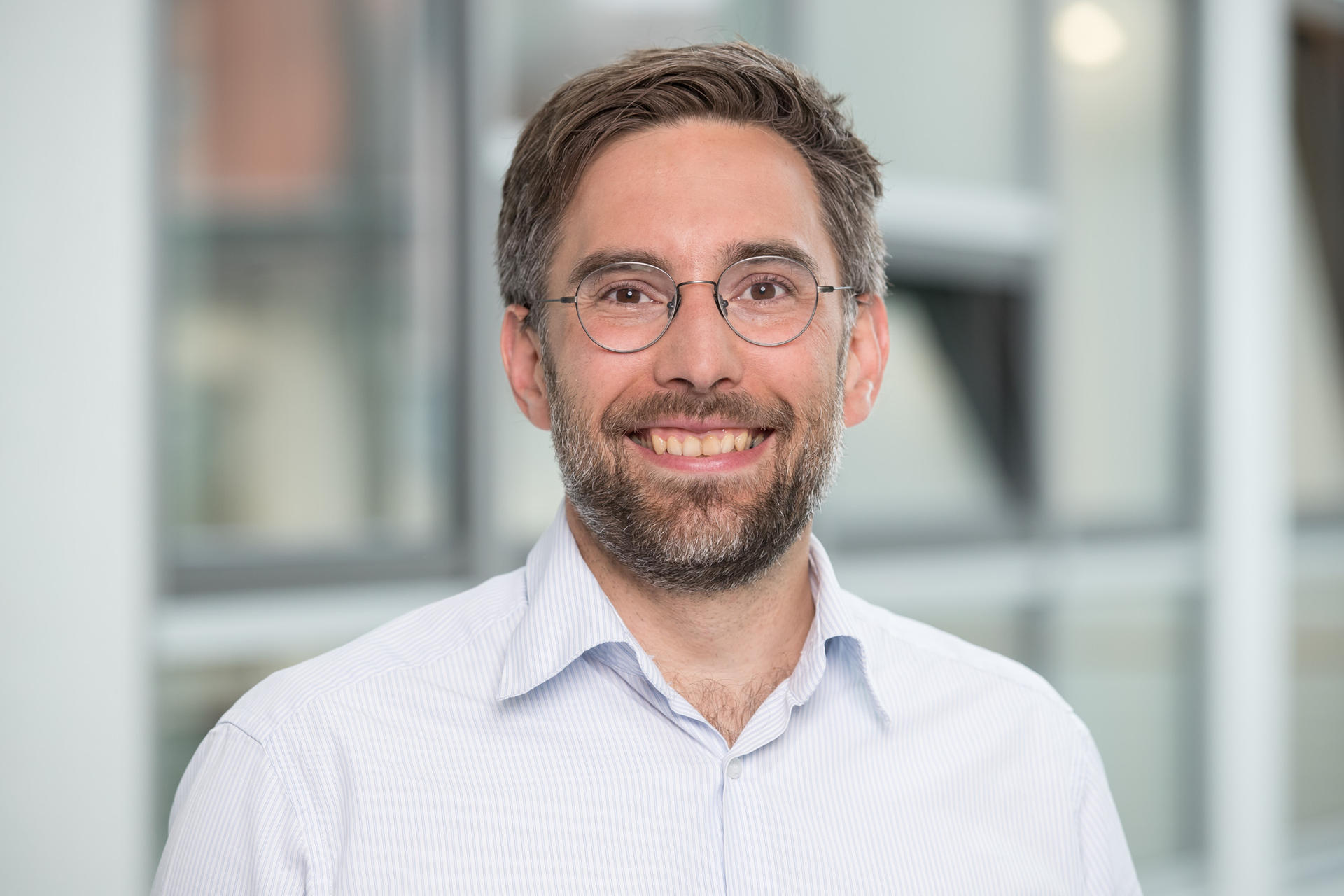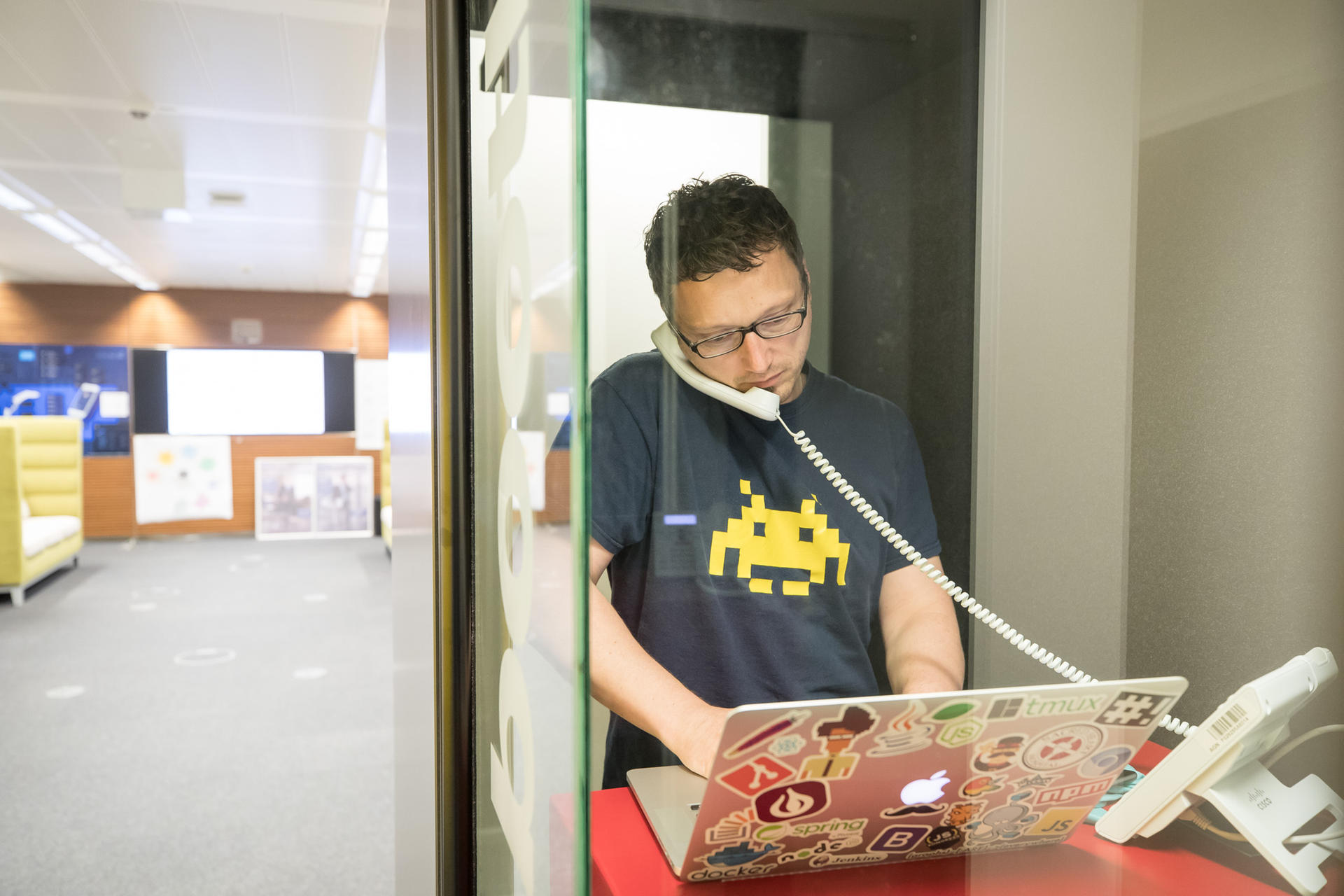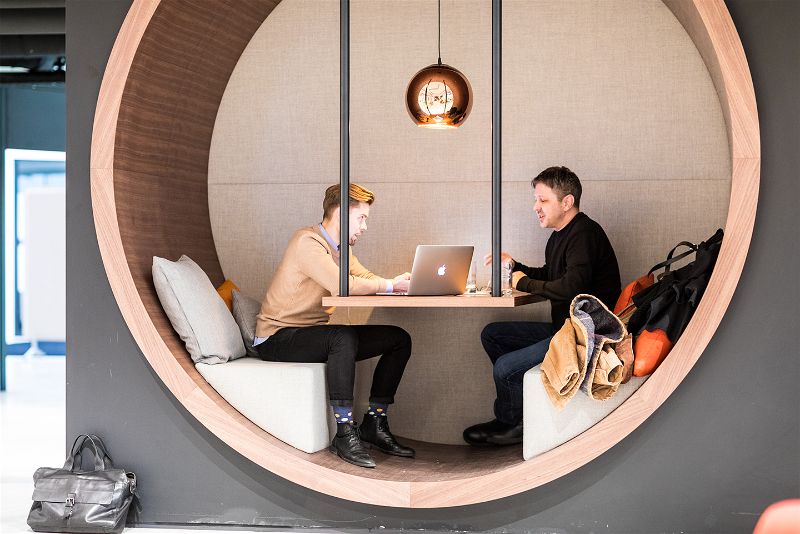A visit to the Global Digital Factory at Munich's Ostbahnhof
The industrial loft space offers a vantage point over half of Munich, decked out in modern furnishings and multiple power sockets dangling from the ceiling for the constantly running iPads. It is lunchtime and casually-dressed employees, speaking an alternate blend of English and German, head to the dedicated Werkraum-Küche (workroom kitchen), where individuals with disabilities cook and serve. Next door is a store for art supplies, and further on, a foundation pit will soon house a sizeable concert hall, which promises to bring a touch of the Royal Albert Hall to the banks of the Isar river. Reinsurer Munich Re and consulting giant Deloitte have already established their digital labs on the site of the former Pfanni dumpling factory. All of this suggests that the factory district (once known as Munich's party area, 'Kunstpark Ost', and later succeeded by 'Kultfabrik'; both are famous well outside of the city limits) is establishing itself as one of Munich's creative hotspots. Similarly, the Global Digital Factory (GDF) could form the blueprint for the office of the future.
"Let's talk about something else," prompts Arne Benzin, Head of GDF. The 41-year-old industrial engineer, who learnt his trade as an underwriter at Swiss Re and has since delved deeper into the insurance sector in both Germany and Britain, does not want to waste much time discussing the facilities. Too often, he explains, the work of his 120-strong team is reduced to trendy interior decor. What they are actually tasked with is addressing tangible issues such as "Customer Journeys" and "Digital Assets". In other words, Allianz employees, freelancers and digital agencies work together in meticulously developing digital solutions to facilitate the lives of their customers – and employees, too. "We can feel the start-ups and large tech companies breathing down our neck. Customers expect the same pace, the same comfort level from us that they are used to from online providers like Amazon, Zalando and Paypal," Benzin explains. Celebrating its 125th anniversary in 2015, Allianz has stood almost unparalleled for decades in terms of integrity, reliability and reason. Nevertheless, the company's brand is rarely associated with pioneering future readiness or with simple and quick processes. Until now.
